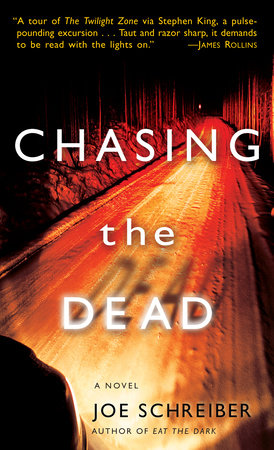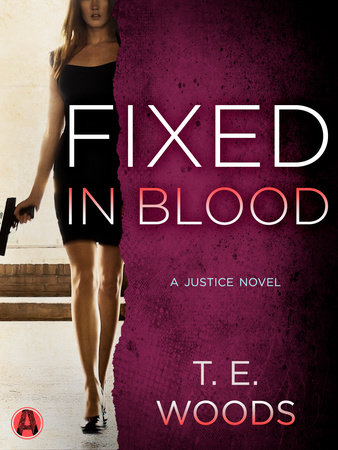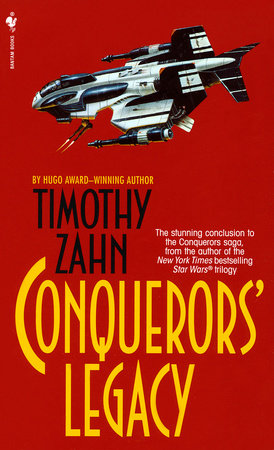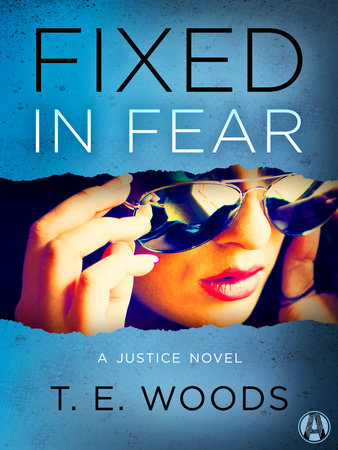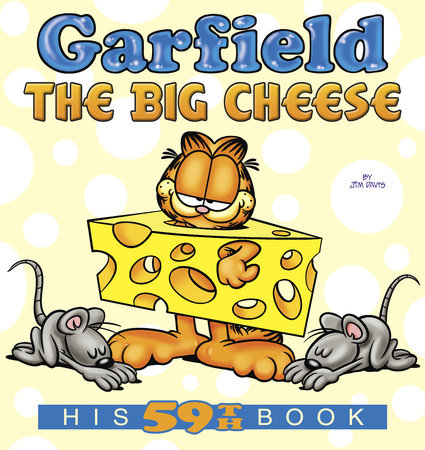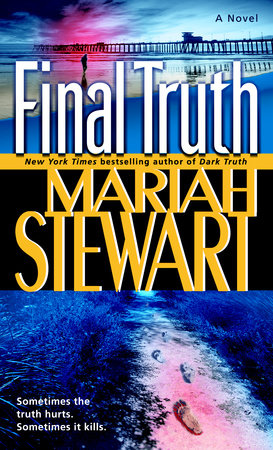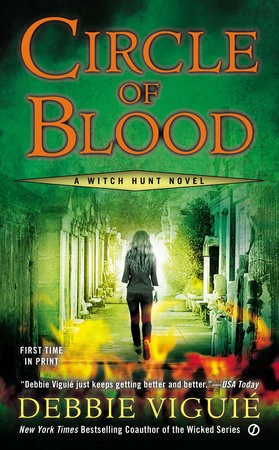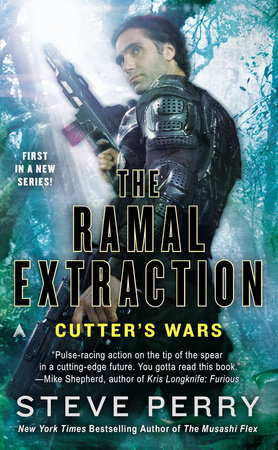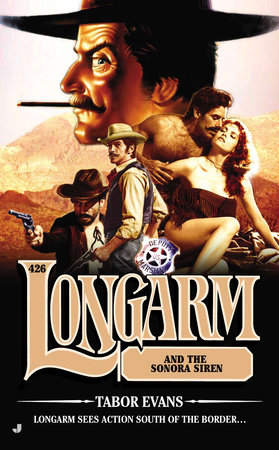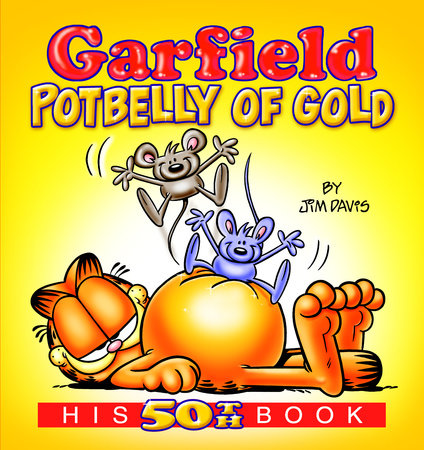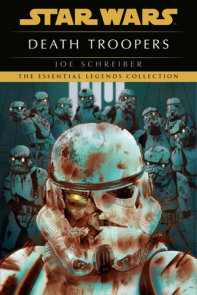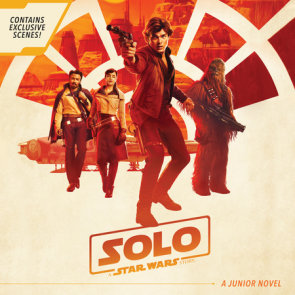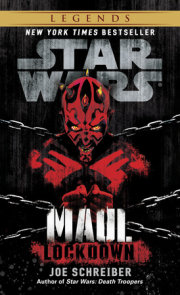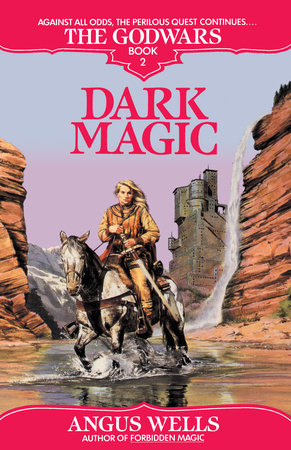Author Q&A
Interview with Joe Schreiber author of Chasing the Dead
Question: Tell us about your new novel, Chasing the Dead.
Joe Schreiber: It’s a horror story that starts out with a phone call–the sort of call that, within five minutes, whisks away all the good things we take for granted. Our heroine is a single mom whose only child is abducted one snowy December night. She’s forced to do the bidding of the voice on the other end of the phone in order to get her daughter back and eventually realizes that her involvement is more than just an unfortunate accident.
More than anything the novel is about realizing that the worst and most nightmarish aspects of our lives are never quite behind us — may, in fact, be lurking just around the bend, waiting for us to feel safe. There is an ongoing pop culture mania for somehow “owning” our past and moving on, but I’ve always been more partial to Faulkner’s notion that the past is not dead; it’s not even past.
I wrote the book during the brief, at one point unimaginable point in my life where I had been forced by certain economic realities to return to school. I was 35 years old, attending a full-time radiography program which required me to commute 40 minutes from my home where my wife was raising our first child and pregnant with our second. It was during these long highway drives, often in darkness, that I thought about what it might be like to find a corpse in the backseat of my middle-aged Olds 88 or — worse — to not find it there until I felt a cold hand reaching forward, touching my shoulder. Hence Chasing the Dead was born.
Q: The action takes place in and around the Boston area. What was it about that area that caught your interest?
JS:I grew up everywhere–mainly in the Midwest — but I am at heart a New England boy. It’s in my blood. I’ve logged summers and winters in Boston and Martha’s Vineyard. Something about the hard-headed Yankee mentality and snowy winters combined with extremely mixed feelings about Puritanism and its earliest precedents somehow moves in lockstep with everything I love about horror. Which is everything I love about life.
Q: How did you get from aspiring author to published author? Do you have any pointers for would-be writers in the audience?
JS: My only advice is to keep writing. Seriously, I can’t tell you how many thousands of pages —and I’m not exaggerating here — I’ve generated that will never see the light of day, nor should they. In a sense I suppose I’m lucky because some demented part of myself has always used writing as a barometer of self-worth. I’m not advocating this as a means of inspiration, but I do think that, barring Haruki Murakami-level out-of-the-box genius, there are only two avenues of success in writing. The first is complete, balls-out, pathological commitment to financial reward, in which case one ought to move to Los Angeles and pursue a career writing for television. The second is to read everything you can get your hands on and deny yourself the first hint of gratification until you’ve written at least five pages of fresh prose every day. For years. And for better or worse, that’s the kind of twisted sensibility that’s bred in the bone. It’s like drug addiction: you either crave that brand of self-flagellation, or you don’t.
It also helps to have an honest reader, one whose opinion you can trust. My wife is pitiless. If she doesn’t like my stuff, she simply puts it aside without comment, the way a kid shoves his creamed spinach off to the side of his plate and eventually feeds it to the dog. I knew I had a winner, relatively speaking, with Chasing the Dead when she stayed up long past midnight to read the unfinished manuscript and woke me up to find out the ending. The joke was on her, though: after I told her, she couldn’t sleep.
Q: What writers have influenced on you?
JS: The obvious ones: Stephen King, Peter Straub, Clive Barker. Outside of the horror genre I love the work of Jim Harrison, Elmore Leonard, Cormac McCarthy, and Peter Abrahams. At the moment my favorite “mainstream” novelist–though it sounds funny to call him that–is probably Elwood Reid. He’s got great chops and Red Bull energy and is absolutely fearless about writing exactly what he wants without so much as a backward glance at the marketplace.
I love first novels, and ‘70s paperback originals, especially scary ones about packs of rabid dogs that take over mostly deserted resort islands. Because, like they say in hip-hop, that shit is tight.
Q: One of the things I liked about the book is how you keep readers guessing about what kind of book it is: a straight-up thriller, a suspense machine, a horror novel. It keeps taking unexpected twists and turns. Did you plot them all out beforehand?
JS: For me, plotting strangles the pleasure out of storytelling. I’m not assembling a model car; I’m watching as my people fight to survive the worst and most terrifying moments in the lives. Unless I’m actually out there on the front lines with them, living and dying on a page-by-page basis, they’re not alive to me at all. And they have to be, in order for the electricity to flow and bring them to life.
If the suspense in Chasing the Dead does work, and I’m so pleased that it does for you, then it’s because I don’t build escape hatches into the story beforehand. If my characters find them, great — if not, I’m bleeding right along with ‘em.
Q: Let me go back to the phrase "suspense machine," because your book is one of the most suspenseful I’ve read in a long time. The book has the feel of progressing in real time; it reminded me of a literary take on the 24 Hours formula.
JS: Real time is at once a very intoxicating and intensely claustrophobic thing. Some of my fondest reading experiences were books I gobbled down in a matter of hours, almost literally unable to put them down. Scott Smith’s A Simple Plan was one of these, a fine, delirious example of a story that simply refuses to release you until it’s finished with you. Elwood Reid’s If I Don’t Six is another.
I wrote Chasing the Dead under some very uncomfortable personal deadlines, trying to learn how to make a living and support my family while indulging an almost shameful need to make up stories. When the baby is screaming in dirty diapers and your pregnant wife is throwing up too much to change him, real time is pretty much the only time you have.
Q: Where did you come up with the Engineer? Is he a figure of urban legend or based on real a serial killer? What about Isaac Hamilton?
JS: The Engineer and Isaac Hamilton are all me. I am fascinated with the darker figures that haunt our American landscape — from Albert Fish to Jeffrey Dahmer — and New England seems like a perfect home for them. Personally I think Halloween is the official holiday of every state north of Connecticut, or if it’s not, it ought to be. Basically as soon as the leaves change color up there, as far as I’m concerned, it’s Crypt Keeper time.
Q: I have the sense that there’s more to this story; that it hasn’t quite finished yet by the end of the book. Is there the possibility of a sequel?
JS: You know, it’s funny because the route between those towns is so old. I have a very clear vision of a Civil War general leading a wagon train of the Union dead through those seven towns, as one by one, the corpses of young soldiers sit back up and pick up their muzzle loaders to return to battle. You can’t help but think of the possibilities, you know? Like I said, it’s pathological.
Q: Has there been any interest from Hollywood?
JS: We’ve had a few nibbles. Of course, they’re all fine nibblers out there, which is probably why they’re all so skinny.
Q: What are you working on next?
JS: My next novel is about a small group of people trapped inside an old hospital that’s about to be closed down. They’re on the last night of operation when the police bring in an infamous serial killer for a brain MRI. The killer gets loose inside the hospital. Our heroes have to find a way out before they’re hunted down, one by one. It doesn’t look good.
